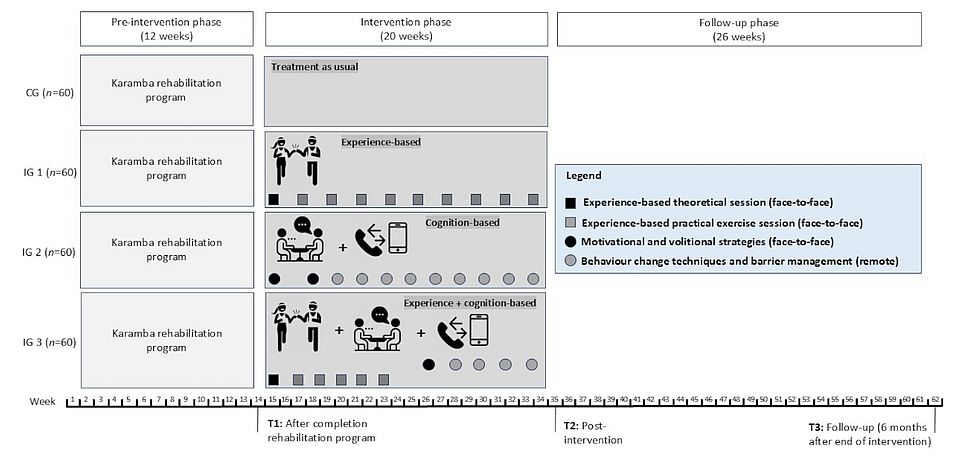/ Forschung
Cardio-Coach: New project supported by the Swiss National Science Foundation

The Swiss National Science Foundation (SNSF) provides funding for an innovative and collaborative research project of Prof. Dr. Markus Gerber (DSBG) and Prof. Dr. med. Otmar Pfister (University Hospital Basel) over a period of four years. Further cooperation partners are PD Dr. Julia Schmid (University of Berne), Prof. Dr. Dunja Nicca (University of Zürich), Prof. em. Dr. Lukas Zahner and Dr. Vivien Hohberg (both University of Basel). The total funding amounts to CHF 750,000.
The Cardio-Coach project intends to move physical activity counselling in patients with cardiovascular diseases to the next level. Cardiovascular diseases (CVDs), encompassing a wide range of heart and vascular conditions, remain the leading cause of morbidity and mortality worldwide. The burden of these diseases not only affects individual health and quality of life, but also imposes significant challenges on public health systems. Meanwhile, the impact of physical activity (PA) and exercise on CVDs and secondary prevention is well documented. Therefore, treatment approaches have evolved in the past two decades, shifting from post-myocardial infarction rest to early mobilization and participation in exercise training. However, the efficacy of these interventions relies on sustained engagement in PA, highlighting the necessity for sustainable and engaging exercise programs. Even the most effective training regimen becomes futile if it fails to provide enjoyment or if individuals lack the cognitive resources necessary to overcome internal and external barriers, leading to inadequate adherence.
In the present study, we bring together the expertise of two internationally recognized research groups from two different Swiss universities (Basel and Berne) – both with long-lasting experiences in physical activity promotion – to combine elements from two theory- and evidence-based interventions (MoVo-Lisa and COMET) and adapt them – in a pragmatic way – to the setting of cardiovascular rehabilitation. Using a randomized controlled trial (RCT) design, the study will show whether compared to treatment as usual (TAU), a cognitive intervention, an experienced-based intervention or a combined intervention will be most effective in promoting sustained physical activity in patients with CVDs (N=160 in total, N=40 per group). The experience-based approach will focus primarily on the role of affect, feelings and emotions. All three interventions will be individually-tailored. Patients are recruited from the Clinic of Cardiology of the University Hospital Basel (USB), while they participate in a 12-weeks out-patient rehabilitation program (Karamba), in which exercise activities constitute the primary treatment method. Data assessments will take place after completion of the rehabilitation program, after the 20-week intervention period, and six months post intervention (follow-up). Primary outcome of the study is accelerometry-based PA at 6 months post-intervention (primary end point).
Our study addresses a critical gap in current PA promotion efforts by focusing on patients with CVDs. Despite the known benefits of PA for CVD management, there remains a significant challenge in encouraging sustained PA engagement among this population. Clinically, our study is poised to make a significant impact by exploring interventions that can be seamlessly integrated into the standard care of patients with CVDs. The pragmatic trial design, which includes a variety of PA modalities tailored to individual preferences and capabilities, ensures the interventions' feasibility and applicability in real-world clinical settings.
